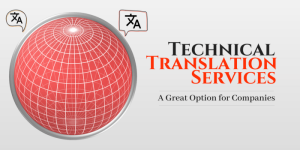
Embark on the journey of starting a business in 2025 with this comprehensive guide that will walk you through the key steps, innovative ideas, and emerging trends in various industries. Get ready to dive into the world of entrepreneurship!
Business Creation and Development
Starting a business in 2025 requires careful planning and execution to ensure success in a fast-paced and competitive market. Market research, a solid business plan, and strategic development are crucial elements to consider.
Key Steps to Start a Business in 2025
- Identify a viable business idea based on market trends and consumer needs.
- Conduct thorough market research to understand the target audience, competition, and industry dynamics.
- Develop a detailed business plan outlining goals, strategies, financial projections, and marketing tactics.
- Secure funding through investors, loans, or crowdfunding platforms.
- Register your business, obtain necessary licenses, and set up operational infrastructure.
- Build a strong online presence through websites, social media, and digital marketing.
- Continuously adapt to market changes, seek feedback, and innovate to stay ahead.
Importance of Market Research in Launching a New Business
Market research is essential for understanding the competitive landscape, identifying customer needs, and assessing the feasibility of a new business idea. By conducting thorough market research, entrepreneurs can make informed decisions, minimize risks, and tailor their products or services to meet specific market demands.
Significance of a Solid Business Plan for Long-Term Success
A solid business plan serves as a roadmap for the company, outlining goals, strategies, and key milestones. It helps attract investors, secure funding, and guide decision-making processes. A well-crafted business plan also provides a framework for measuring progress, identifying challenges, and making necessary adjustments to ensure long-term success.
Domestic Services
In 2025, domestic services are expected to continue to be in high demand as people seek convenience and help with household tasks. Here, we will explore popular domestic service business ideas for 2025, tips on how to stand out in a competitive market, and the role of technology in enhancing domestic service offerings.
Popular Domestic Service Business Ideas for 2025
- Smart Home Installation and Maintenance: With the increasing adoption of smart home devices, offering installation and maintenance services can be a lucrative business idea.
- Elderly Care Services: As the population ages, there is a growing need for in-home care services for the elderly. Providing personalized care and companionship can set your business apart.
- Organizing and Decluttering Services: Many people struggle with clutter and organization. Offering professional organizing services can help clients create functional and aesthetically pleasing living spaces.
- Sustainable Cleaning Services: In an environmentally conscious world, eco-friendly cleaning services using non-toxic products can attract a niche market segment.
Tips to Differentiate Your Domestic Service Business
- Focus on Personalization: Tailor your services to meet the unique needs and preferences of each client to provide a personalized experience.
- Offer Additional Services: Provide add-on services such as pet sitting, plant care, or meal preparation to enhance the value proposition for your customers.
- Invest in Training and Certification: Obtain relevant certifications and training to showcase your expertise and professionalism in the industry.
- Utilize Technology: Implement booking platforms, online payment systems, and communication tools to streamline operations and improve customer experience.
Role of Technology in Improving Domestic Service Offerings
- Automation: Use automated scheduling systems and smart devices to efficiently manage appointments and tasks.
- Mobile Apps: Develop a user-friendly mobile app for clients to book services, track progress, and provide feedback easily.
- IoT Integration: Integrate Internet of Things (IoT) devices to monitor home environments, optimize energy usage, and enhance security.
- Data Analytics: Analyze customer data to identify trends, preferences, and areas for improvement in service delivery.
Transportation and Logistics

The transportation and logistics industry is constantly evolving with technological advancements and changing consumer behaviors. Aspiring entrepreneurs in this field need to stay updated on the latest trends and practices to succeed in 2025.
Sustainable Practices for Transportation Businesses
In 2025, sustainable practices are becoming increasingly important for transportation businesses. Companies are focusing on reducing their carbon footprint by incorporating electric vehicles, optimizing routes to minimize fuel consumption, and using eco-friendly packaging materials. By embracing sustainable practices, businesses can not only reduce costs in the long run but also appeal to environmentally conscious consumers.
Impact of Automation on Logistics Operations
Automation is revolutionizing logistics operations in 2025, streamlining processes and increasing efficiency. Automated warehouses with robots sorting and packaging goods have become the norm, reducing human error and speeding up order fulfillment. Autonomous vehicles and drones are also being utilized for last-mile delivery, providing faster and more cost-effective shipping solutions. The benefits of automation in logistics include improved accuracy, reduced labor costs, and enhanced overall productivity.
Textiles and Nonwovens

The textiles and nonwovens industry is constantly evolving, and entrepreneurs in 2025 need to stay ahead of emerging trends to succeed in this competitive market. Innovation, sustainability, and eco-friendly practices are becoming increasingly important in this industry, shaping the way businesses operate and interact with consumers.
Emerging Trends in the Textiles and Nonwovens Industry
Innovations such as smart textiles, sustainable materials, and advanced manufacturing processes are revolutionizing the textiles and nonwovens industry. Entrepreneurs should keep an eye on trends like digital textile printing, 3D knitting, and bio-based materials to stay competitive in the market.
- Smart textiles embedded with sensors for monitoring health and performance.
- Increased demand for sustainable and biodegradable materials like bamboo, hemp, and recycled fibers.
- Advanced nonwoven technologies for filtration, healthcare, and automotive applications.
Innovative Ideas for Starting a Textiles or Nonwovens Business
Entrepreneurs looking to start a textiles or nonwovens business in 2025 can explore unique ideas that cater to the growing demand for sustainable and innovative products. From eco-friendly clothing lines to biodegradable packaging solutions, the possibilities are endless for those willing to think outside the box.
- Launching a direct-to-consumer brand specializing in smart activewear for fitness enthusiasts.
- Creating a line of biodegradable nonwoven wipes for personal care and household cleaning.
- Developing sustainable textile materials for use in home decor and interior design.
Importance of Sustainability and Eco-Friendly Practices
Sustainability has become a key focus in the textiles and nonwovens industry, driven by consumer demand for ethical and environmentally friendly products. Entrepreneurs who prioritize sustainability in their business practices can not only attract eco-conscious consumers but also contribute to a more sustainable future for the industry as a whole.
Implementing eco-friendly dyeing processes to reduce water usage and chemical waste.
Partnering with suppliers who adhere to fair labor practices and sustainable sourcing methods.
Offering recycling programs for textile waste to promote a circular economy and reduce environmental impact.
Translation Services
In today’s globalized world, the demand for translation services is on the rise as businesses expand internationally, and communication across different languages becomes essential. This presents a lucrative opportunity for entrepreneurs looking to start a successful translation services business.
Establishing a Successful Translation Services Business
- Identify your target market: Determine the specific industries or sectors where your translation services will be most in demand.
- Build a team of skilled translators: Hire professional linguists who are fluent in multiple languages and specialize in various fields.
- Invest in technology: Utilize translation software and tools to enhance efficiency and accuracy in your services.
- Offer a wide range of services: Provide translation, localization, interpretation, and other language-related services to cater to diverse client needs.
- Market your services effectively: Develop a strong online presence, network with potential clients, and showcase your expertise through testimonials and case studies.
Role of Technology in Translation Services
Technology plays a crucial role in enhancing translation services by improving speed, accuracy, and cost-effectiveness. Translation software like CAT tools (Computer-Assisted Translation) and machine translation algorithms have revolutionized the industry. These tools help translators work more efficiently by providing terminology databases, translation memories, and automated translation suggestions. However, it’s important to note that while technology can aid in the translation process, human translators are still essential for maintaining quality and cultural nuances in language services.
End of Discussion
As we wrap up this guide on starting a business in 2025, remember that success lies in adapting to market changes, embracing technology, and prioritizing sustainability. Whether you’re venturing into domestic services, transportation, textiles, or translation services, the key is to stay informed, innovative, and resilient in the ever-evolving business landscape. Cheers to your future entrepreneurial endeavors!
FAQ
What are the key steps to start a business in 2025?
Research market trends, develop a solid business plan, and leverage technology for growth.
How can I differentiate my domestic service business in a competitive market?
Offer unique service packages, focus on exceptional customer service, and utilize technology for efficiency.
What are sustainable practices for transportation businesses in 2025?
Implementing electric vehicles, optimizing routes for fuel efficiency, and investing in eco-friendly packaging solutions.
How can technology enhance translation services and efficiency?
Utilize AI-powered translation tools, streamline workflow with software, and offer multilingual support online.





